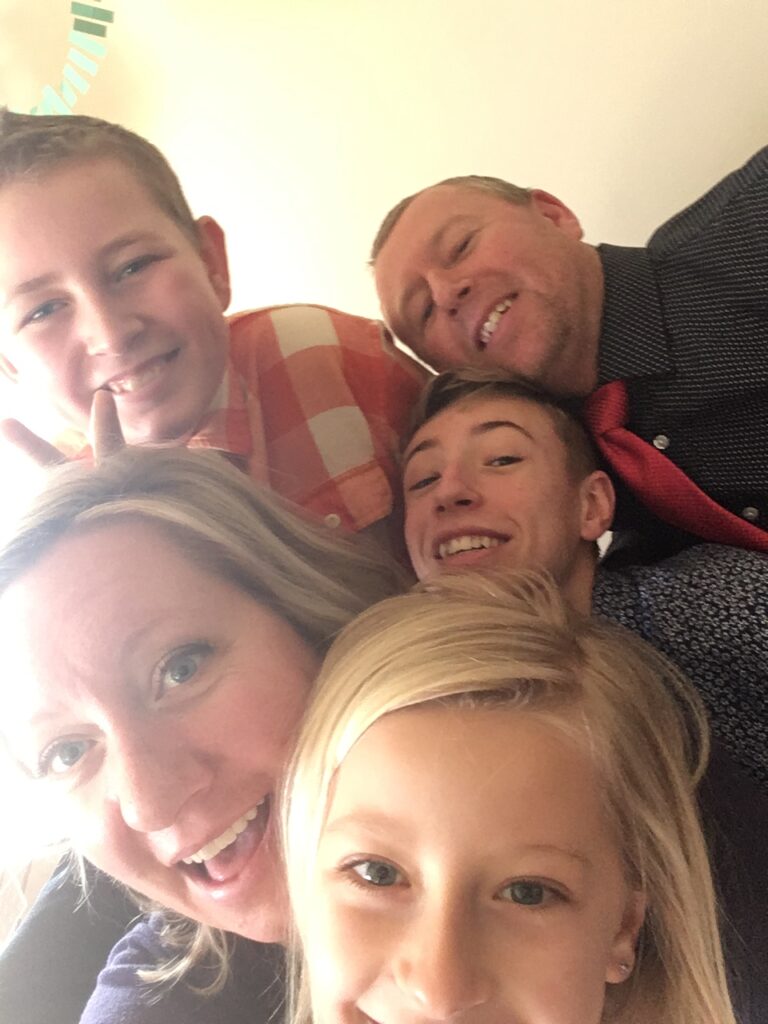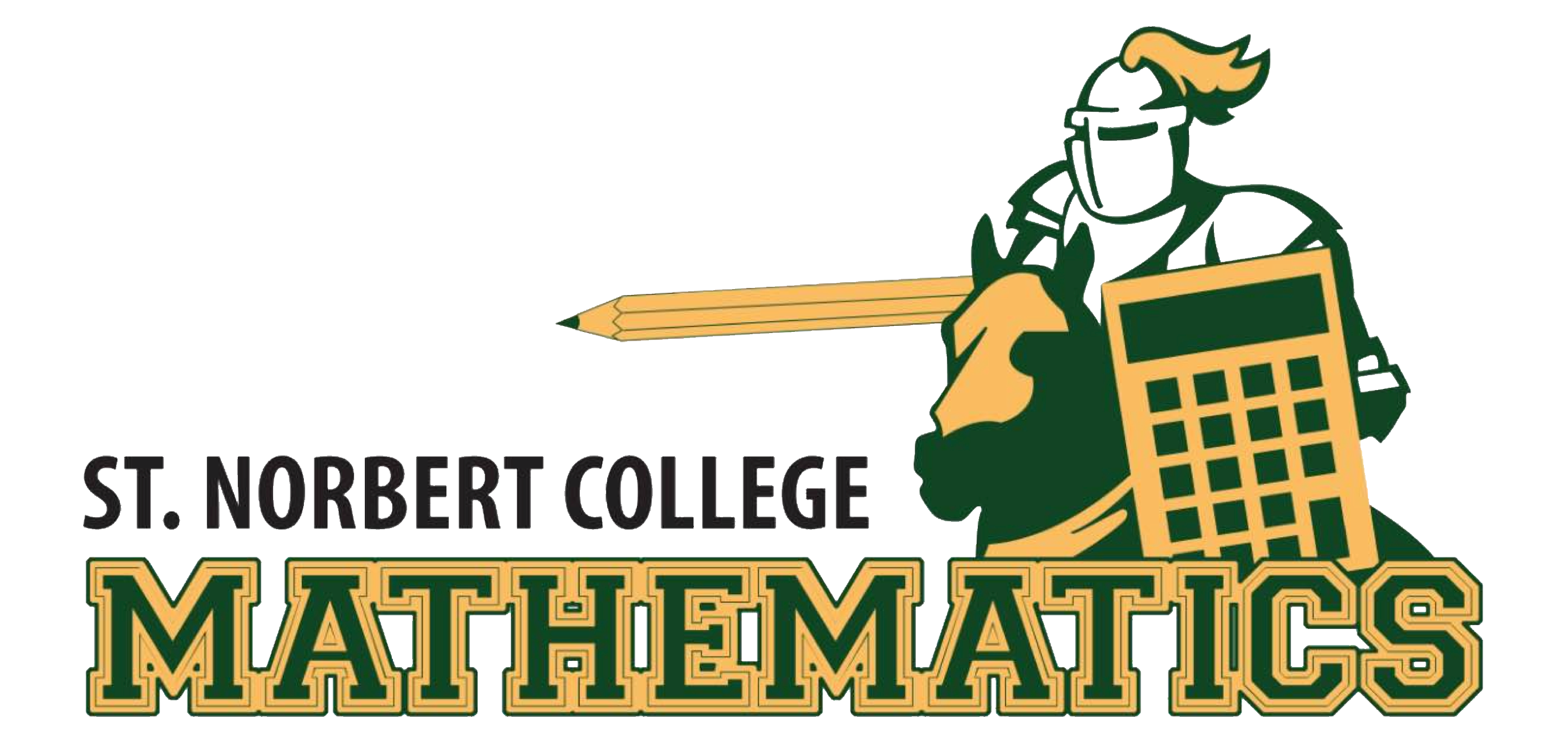SNC Math Faculty

Lindsey Bosko-Dunbar
Associate Professor of Mathematics
Lindsey Bosko-Dunbar’s undergraduate degrees in mathematics and mathematics secondary education allow her to teach a variety of classes in the math discipline including those for education majors and those interested in actuarial science. She enjoys engaging students with varied interests in mathematics and trying to determine which aspects they find particularly fascinating. Her own research interests include Lie & Leibniz algebras, cryptography, and recreational mathematics. Her PhD research was on nilpotent Lie algebras of maximal class and she has ongoing projects in Leibniz algebras that explore analogues of known results in Lie algebras.
When not doing math Lindsey enjoys cooking, gardening, and outdoor activities with her family.
Projects Mentored:
- Survey Labyrinth Probabilities. Nathan LeRoy, 2021
- An Analysis of Strategic Thinking in Ravensburger Labyrinth, Lydia Mader, 2021

Jonathan Dunbar
Associate Professor of Mathematics
Jonathan Dunbar teaches undergraduate mathematics courses at all levels. Dunbar loves teaching any course that allows him to work with curious students. Where possible, he teaches the applications of math to issues of social justice, a current emphasis of MATH 123, Applications of Contemporary Mathematics. Dunbar’s research interests include abstract algebraic structures, especially non-associative ones like Lie and Leibniz algebras, and also the study of where mathematics intersects with society, particularly as it relates to voting and the redistricting process. Whenever possible, he looks to incorporate undergraduates in his research projects. Dunbar advises the SNC Math Club, Sigma Nu Delta, and is a member of the Pi Mu Epsilon National Mathematics Honor Society, the Mathematical Association of America, the National Association of Mathematicians, and the NAACP.
Projects Mentored:
- A New Measure for Partisan Bias in Redistricting, Megan Struble, 2020

Eric Friedlander
Assistant Professor of Mathematics
Eric Friedlander is an assistant professor of mathematics whose expertise lies in the areas of probability and statistics. He received his bachelor’s degree in mathematics and statistics from Rice University in 2011. After earning his degree, he worked for Capital One for two years in their home loans division before enrolling in graduate school. In 2018, Eric received his Ph.D. in statistics and operations research from the University of North Carolina at Chapel Hill studying under professor Amarjit Budhiraja. His dissertation work focused on modeling and analyzing large systems which arise in industrial engineering (e.g. large server and communication networks). Following his Ph.D., Eric did a postdoc in the Department of Ecology & Evolution at the University of Chicago under the direction of professor Matthias Steinrücken where he used stochastic processes to study natural selection and population genetics.
Outside of school, Eric is an avid fan of the New York Giants, New York Knicks, and North Carolina Tarheels. In addition, he enjoys comic books, the Fast and the Furious franchise, and spending time with his lovely wife Maria and loveable dog Frank.

Jacob Laubacher
Assistant Professor of Mathematics
Jacob Laubacher is currently an assistant professor of mathematics who teaches a broad list of courses, but gets most excited about those involving theory and proof. His research interest lies in algebra. Most notably, he juggles two on-going projects: one within the realm of homological algebra studying generalizations and properties of Hochschild (co)homology, and the other in the world of group theory investigating whether or not certain graphs can occur as the prime character degree graph of a solvable group.
When he’s not doing math, he enjoys running, knitting, and reading. He’s also an avid fan of both the Oxford comma and the Cleveland Browns. He is obsessed with card games, desserts, and quality furniture
Projects Mentored:
- Examples of Graphs that Admit No Normal Nonabelian Sylow p-Subgroup, Mark Nichols, 2018

Terry Jo Leiterman
Associate Professor of Mathematics
Terry Jo Leiterman’s research interests lie in the area of applied mathematics, with emphasis on fluid dynamics and mathematical models in the sciences. Her PdD research focused on modeling the motion of a slender body in a viscous fluid. This work has been used to benchmark nano-scale experiments involving cilia and contributes to the Virtual Lung Project at UNC-Chapel Hill. The goal of this project is to develop effective therapies for the treatment of Cystic Fibrosis. Leiterman’s current scholarship includes her PhD work along with modeling population dynamics and fluid systems. She runs the SNC Fluid Mechanics Laboratory in the Gehl-Mulva Science Center.
In 2006, Leiterman was selected as a fellow to the national Project NexT program of the Mathematical Association of America.
In 2008, with the support of SNC alumni and in collaboration with the math faculty, Leiterman began the direction of a summer research program in mathematics for undergraduate students. This continues a long and proud tradition of promoting undergraduate research in the discipline, which is revealed through the regional Pi Mu Epsilon (PME) conference (held annually at SNC since 1985) and the many lectures students have given at conferences across the nation. PME is the national mathematics honorary society. This work has led to the Poss-Wroble Summer Undergraduate Fellowship in Mathematics at SNC, which supports students as research scholars full-time in the summer culminating in the dissemination of their work at the national MathFest conference in August.
Projects Mentored:
- Modeling the Population Dynamics of Diseased Fish, Bao Van, 2019
- Columnaris Disease and the Population Dynamics of Infected Fish, Allison Gerk, 2018
- Legendre’s Equation, Colleen Mandell, 2017
- An Exploration in Electrical Circuits and Mass-Spring Systems, Hanna Strohm and Joseph Mohr, 2017
- Constructing the Airy’s Function and Other Solutions within a Special Class of ODEs, Brittany Sheahan, 2017
- Helping the Environment through Strategic Placing of Power Plants, Sarah Stiemke, 2013
- An Economic Approach to Environmental Sustainability of Public Beaches, Oceans and Waterways, Doug Wickingson, 2013
- An Exploration in Differential Equations for Modeling Population Growth, Jeff LaJeunesse, 2012
- Genome Exploration, Kathleen Miller, 2009
- Modeling Diatom Growth in Trout Lake, Part 2, Corey Vorland and Stephanie Schauer, 2009
- How We Roll: The Theory and Construction of the Square Wheel Bicycle, Alicia Brinkman. 2008
- Genetic Modeling of the White Buffalo, Kathleen Miller, 2008
- Rolling Smoothly on a Saw-Tooth Road: The Theory for a Wheel, Stephanie Schauer, 2008
- Modeling Diatom Growth in Trout Lake, Stephanie Schauer & Corey Vorland, 2008

Seth Meyer
Professor of Mathematics
Seth Meyer’s research interests lie in the areas of combinatorics, linear algebra, and mathematics education. He is particularly interested in inverse problems in graph theory and applications of discrete mathematics. He has authored thirteen research papers in a variety of mathematics journals and has mentored 5 summer undergraduate research projects in diverse areas such as graph theory, representation theory, and behavioral economics.
Meyer is committed to building strong relationships with his students and to helping them develop mathematically and personally. His courses typically include a variety of different ways to demonstrate learning objectives in different assessment formats. He teaches courses at all levels of mathematics but teaches courses for preservice teachers and linear algebra most frequently.
In 2012, he was selected as a fellow to the national Project NexT program of the Mathematical Association of America. He has also worked on several grants related to teacher education and he has been funded to develop pathways to increase the number of STEM teachers through the National Science Foundation’s Noyce grant.
Projects Mentored:
- How Not to be Lazy: Reducing Procrastination Through Two-Player Task Modification, Jessica Pomplun, 2019
- Variation in Procrastinating over Repeated Tasks, Joshua Schill, 2019
- Non-Existence of Uniformly Most Reliable Two-Terminal Networks, Hayley Bertrand, 2016
- Minimum Rank for Disconnected Circulant Graphs, Hayley Bertrand, 2015
- Minimum Rank of Circulant Graphs, Sam Potier, 2015
- Cayley Groups, Laura Staver, 2013
